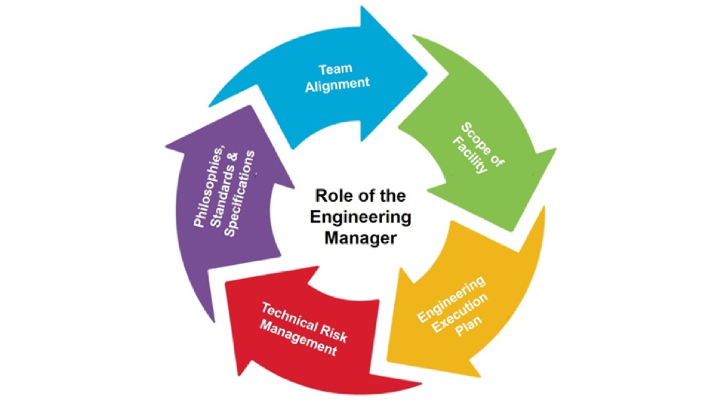Engineering Management: Leading Teams to Success

As an engineer, I have always been passionate about finding technical solutions to complex problems. However, I soon realized that effective management is just as crucial for achieving success in engineering projects. That's why today I want to explore the essential role of engineering management and the key skills that all aspiring engineering managers should possess.
A Path to Fulfillment
Technical Expertise and Leadership
Engineering managers are individuals who have excelled in both technical mastery and leadership. They fulfill the role of connecting the technical aspects of a project with its overarching goals. By leveraging their expertise, they gain an understanding of their team members' work intricacies, empowering them to make informed decisions and effectively guide their team.
Strategic Decision-Making
A key role of an engineering manager is to make strategic decisions that are in line with the organization's goals. These decisions typically encompass resource allocation, budgeting, and risk assessment. An example would be determining the most efficient way to allocate manpower and resources for project success. The ability to make effective decisions is vital as it directly influences project timelines, budgets, and overall outcomes.
Project Management Expertise
Engineering managers are also knowledgeable in a range of project management methodologies. They recognize that different projects may call for distinct approaches, such as the adaptability of Agile or the organization of Waterfall. They possess the ability to customize project management techniques to meet the specific requirements of each project, guaranteeing efficient resource utilization and adherence to timelines.
Risk Assessment and Contingency Planning
One of the key traits of a proficient engineering manager is their capability to recognize potential risks and create contingency plans. These managers take proactive measures in evaluating risks that could potentially hinder project advancement, implementing strategies to minimize such risks. This foresight and preparedness not only prevent obstacles but also enhance the overall effectiveness and resilience of the project.
Stakeholder Engagement and Relationship Building
Effective communication extends beyond the team; it includes engaging with various stakeholders, including clients, upper management, regulatory bodies, and other relevant parties. Engineering managers are adept at maintaining open lines of communication with stakeholders. They provide regular updates, manage expectations, and address concerns promptly. Building strong relationships with stakeholders fosters trust, which is essential for project success and future collaborations.
Innovation and Continuous Improvement
Encouraging innovation within the team is another key responsibility of an engineering manager. They create an environment where team members feel empowered to think creatively and suggest improvements. This culture of innovation often leads to novel solutions, increased efficiency, and even breakthroughs that can positively impact the organization.
Feedback and Adaptation
Engineering managers understand the importance of feedback loops. They actively seek input from team members, clients, and other stakeholders to assess project progress and identify areas for improvement. This feedback-driven approach ensures that projects remain adaptable and responsive to changing circumstances.
The Shadows of Engineering Management
While engineering management is a rewarding and vital role, it comes with its fair share of challenges and pain points. Acknowledging these challenges is crucial for aspiring engineering managers to prepare for the road ahead and find effective solutions. Here are some common pain points experienced by engineering managers.
Senior Developers Transitioning to Managers: The Challenges of Going Solo
Moving from a senior developer to a manager without support poses significant challenges. The shift from technical work to overseeing teams and projects can be disorienting, and a lack of management skills can lead to inefficiencies and conflicts. Balancing technical work with managerial duties, handling peer relationships, and meeting stakeholder expectations can result in job dissatisfaction without guidance or training.
Balancing Technical and Managerial Responsibilities
Engineering managers often find themselves straddling two worlds – the technical domain they are familiar with and the managerial responsibilities that come with their role. This balance can be demanding, requiring them to stay updated on technical trends while overseeing project management tasks.
Team Dynamics and Conflict Resolution
Managing diverse teams can be challenging due to the variety of skills and personalities involved, leading to conflicts and communication issues. However, resolving these conflicts and creating a harmonious team environment is an ongoing process that requires effective management strategies.
Time Management
Managing multiple responsibilities, such as project planning and team supervision, can feel overwhelming for engineering managers. They need to effectively prioritize their time to meet immediate demands while also addressing long-term goals.
Resource Constraints
Having limited resources, whether due to budget constraints or a shortage of skilled engineers, can pose significant obstacles to project progress. It is crucial to constantly seek out creative and innovative solutions in order to overcome these resource challenges effectively.
Scope Creep and Change Management
Successfully managing project scope changes and unforeseen disruptions can pose significant challenges for engineering managers. It becomes their responsibility to navigate through these changes efficiently, whilst simultaneously ensuring the smooth progress of the project and satisfying all stakeholders involved.
Bottom Line
Engineering management is a complex role that brings both rewards and challenges. It requires a combination of technical expertise, leadership skills, and strategic thinking.
While it can be highly fulfilling, engineering managers also face difficulties such as burnout, limited resources, and managing team dynamics. Juggling technical work with managerial responsibilities is often tricky, and the pressure to meet stakeholder expectations can overshadow accomplishments.
However, recognizing these challenges is essential for finding solutions and embracing the positive aspects of engineering management – including innovation, collaboration, and successful project outcomes.
